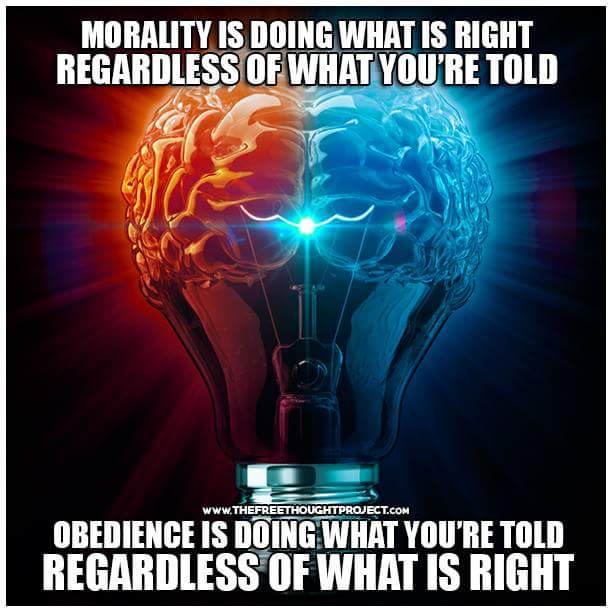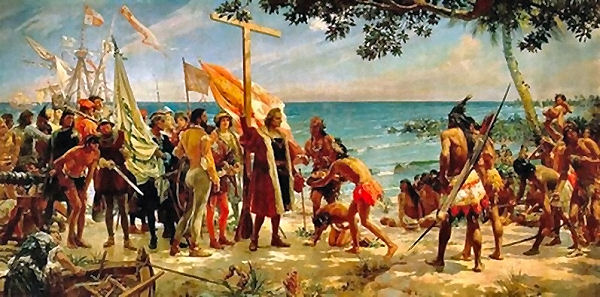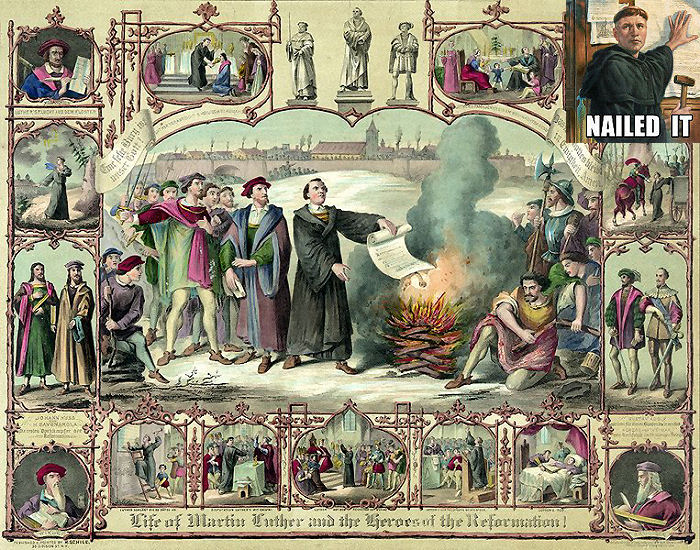
|

"Modern scientific methods confirm the basic
values of moral teachings."
Andrew
M. Lobaczewski

"Our observations upon the conduct of others
insensibly lead us to form within ourselves certain general rules concerning
what is proper either to be done or avoided.
Those general rules of
conduct are properly called a sense of duty,
a principle of the greatest
consequence in human life, and the only principle by which the bulk of
mankind are capable of directing their actions.
Without this sacred
regard to general rules, there is no man whose conduct can be much depended
upon.
This is what constitutes the essential difference between a
man of principle and honor,
and a worthless fellow.
The one adheres
steadily and resolutely to his maxims, and
preserves through his life
one even tenor of conduct.
The other acts variously and accidently,
as humor, inclination, or interest chance to be uppermost.
Upon the
tolerable observance of these duties [ justice, truth, chastity, fidelity]
depends the very existence of human society, which would crumble into nothing
if mankind were not generally impressed with reverence for those important
rules of conduct." - Adam Smith

The American moral compass
twisted and spun like a metalized mylar Mickey mouse balloon caught in the
slipstream of a violently rotating column of highly combustible air.
When the plasma lightening bolt struck that metalized mylar Mickey
mouse balloon, a resounding thunderclap, that left the ears ringing like the
firing of a Colt .45, could be heard for miles away across the lifeless barren
plain.
Years later it was noted by eminent moral philosophers that the
American moral compass had been improperly maintained by those moral compass
gatekeepers largely due to the acceptance of molecular biology within the body
politic.
It was finally agreed that a turning away from the dependence
on life to give life to the transhuman subsistence on toxic minerals and
genetically modified organisms which destroyed
the people'
ability to engage in critical thought was the culprit. |
"It seems
at first sight a very rational way of testing any proposed rule of conduct is
to ask - how will it work?
Taking men as we know them, and
institutions as they are, what
will result from carrying such a theory into practice?
This
very common-sense style of
inquiry is that by which most opinions on morals and politics are formed.
People consider the
feasiblity of social systems, whether it will square with this or the other
social arrangement, whether it fits with
human nature.
They have notions of what man
is, and what
society must be; any ethical doctrine depends upon its accordance or
discordance with these.
Moral systems are adopted or condemned regularly
due to the consistency of the inconsistency of men to take for granted nothing
changes.
And yet we know human
nature to be infinitely variable.
One correct course is open; he
must either follow or take the consequences.
The
conditions of existence do not
bend before his perversity.
When they are broken,
no exception from
penalties are to be hoped for.
Confounded by ever-new aspects of human
affairs, it is not surprising men fail to recognize the systematic
character of the natural
moral order.
Accumulated evidence is gradually generating the
conviction that events play out in a certain inevitable way by unchanging
forces in human nature.
In all ages there has been some glimmering
perception of this truth; and experience
is ever giving to that perception increased distinctness.
Indeed
even now all men do, in one mode or other, testify of such a
faith.
Every known creed is an assertion
of it.
What are the moral codes of the
Mahometan, the
Brahma, the
Buddhist, but
acknowledgments of inseparable connection
between conduct and results?
Do they not all say you shall not do
this, and this, because they will produce evil; and you shall do that
and that, because they will produce good?
We imply such a
faith, too, in our every day conversations; in our maxims and precepts, in our
education of children,
in our advice to friends.
In judging we instinctively refer
to some standard of ascertained
principles.
We predict good or
evil of this or the other scheme, because of its accordance or
discordance with certain perceived social laws of
life.
Surely, then, if all believe in the persistency of these
secondary laws, much more should they believe in the persistency of those
primary ones, which
underlie human existence, and out of which our every day truths grow.
Either society has laws, or it has not.
If it has not, there
can be no order, no certainty, no system in its phenomena.
If it has,
they are sure, inflexible,
ever active, and having no exceptions.
Having
ascertained what these
laws are; we implicitly obey them!
Only by submission to them can
anything permanently succeed.
Only as it complies with the principles of
moral equilibrium can it stand.
Our social edifice may be constructed
with ingenuity, and clamped together with cunningly-devised enactments, but
there must be rectitude for
its component parts - if it is not built on upright principles, it
will collapse.
As well might we seek to light a fire with ice, feed
cattle on stones, hang our
hats on cobwebs, or otherwise disregard the
physical laws of the world, as
go contrary to its equally imperative
ethical laws.
We cannot always be strictly guided by
abstract principles.
Prudential considerations must have some weight.
It is necessary to use a little
diplomacy.
Very
specious are your reasons for advocating this or the other exception.
Rest satisfied that they are no more impossible than are your proposed
exceptions, which similarly conflict with the essential social laws of
life.

One breach of moral law
leaves a gap for
numberless subsequent trespasses.
If the first move has been taken
with impunity, it will be followed by others.
Make a hole through a
principle to admit a solitary exception and so many other exceptions will be
thrust through after as to render the principle void.
If its
consequences are
closely traced, this same plea
for licence in special cases turns out to be
the source of nearly all the evils
that afflict us.
The rule
breaker confesses his act is at variance with moral law, which he admits to
be, and in some sort believes to be, the best guide.
The rule breaker
thinks that his interest requires him to make exceptions.
All rule breakers do this;
and see the result.
A rule breaker is laying claim to the perfect
knowledge of precognition.
In short, he is assuming
omniscience, a requisite for success.
Departure from principle to escape
anticipated evil is a return to the proved errors
of engaging in political expediency.
Further enforced by reflection,
to think we can better ourselves
by deserting the road marked out, is
an impious assumption
of divine omniscience.

If the foolishness of such
conduct needs illustrating by facts, there are plenty.
Constant failure of unethical
schemes exemplifies these ethical principles.
The enslavement of the
negroes serves as a good example.
Rich soils, a splendid climate
and a large market for the sale
of produce.
Now, could but a sufficiency of labourers be imported
and reduced to servitude, what
profit they would bring to their possessors!
Their
golden visions have been far from
realized however.
Slave countries
are comparatively poverty stricken all over the Earth.
The southern
states of America are far behind their northern neighbors in
prosperity and
are in process of abandoning
slavery one after another.
Somehow the scheme has not answered as
was expected.
Though worked in some cases sixteen hours out of the
twenty-four; supported on "a pint of flour and one salt herring per day;"
kept to his work by whips,
the slave did not bring to his owner
the large profit calculated.
It has turned out that under like
circumstances wage labor is
cheaper.
Then there came results that were never looked for.
Slavery brought in its train the
multiplied curses of a diseased social state; a reign of mutual
hatred and
terror;
of universal
demoralization; of sin-begotten
recklessness; of extravagant
expenditure; of bad
cultivation, exhausted soils,
mortgaged estates,
bankruptcy,
beggary.
Our governors
thought it would be highly beneficial to the mother country if the colonies
were constrained to become her customers by prohibiting settlers from
purchasing certain goods from any other country than England and actually
denying them the right to make those goods for themselves!
As usual the manœuvre proved
worse than abortive.
That outlay was wholly thrown away, and worse
than thrown away; for it turns out that
artificial trades so obtained
entail loss upon both parties.
Then came
punishment,
the résistance of
the settlers, war of
independence, and the hundred and odd
millions added to our national burdens!
What an astounding
illustration of the defeat of dishonesty by the eternal laws of right conduct
we have in the history of the
East India
Company!
Selfish, unscrupulous, worldly-wise policy, unlimited
force to back it, this oligarchy perseveringly carried out schemes of
aggrandisement.
It subjugated province
upon province.
It laid one prince after
another under tribute.
It made
exorbitant demands
upon adjacent rulers, and construed refusal into a pretext for
aggression.
It became sole
proprietor of the land, claiming one-half the produce as rent.

It entirely
monopolized
commerce: thus
uniting in itself the character of conqueror,
ruler,
landowner, and
merchant.
With all these
resources, what could it
be but prosperous?
From the spoils of victorious war,
the rent of millions of acres, the
tribute of dependent monarchs,
the profits of an
exclusive trade, what untold wealth must have poured in upon it! what
revenues! what a bursting exchequer!
Alas! the Company is some
50,000,000l. in debt.
These are but a few samples from a
universal experience.
If diligently traced,
the results of abandoning
the ethical to pursue the expedient will uniformly be found to end
thus.
Men insane enough to
think that they may safely violate fundamental laws of right conduct,
may read in such defeats and
disasters their own fate.
Let them but inquire, and they will find
that each petty evil, each great catastrophe, is in some way
the consequence of a
sequence of injustice.
Yet this commentary on -
history as we call it - men for
ever read in vain!
Distraction and fear keeps
them from collecting
evidence.
What are laws determine national
success or failure, stability or
revolution?
Instead
they gossip about
state intrigue, court
scandals, crimes of
nobles, the quarrels of
parties, births,
deaths, and
kings, and other like
trifles.
Minutiæ,
pettifogging
details, the vanity and
frippery of bygone times,
decorations of the web
of existence, they examine,
analyze, and
lecture on.
Yet they are blind to
stern realities each
age shrouds in its superficial
tissue of events - terrible truths which glare
out from the gloom of the past.
From the
successive strata of our historical
deposits, they diligently gather
highly-coloured fragments, pounce upon
everything that is
curious and sparkling,
and chuckle like children over
their glittering acquisitions; meanwhile the
rich veins of wisdom lie
utterly neglected.
Why all this laboured examination into the
propriety, or impropriety, of making exceptions to an ascertained ethical law?
The very question is absurd.
What does it mean to say a thing is "theoretically just," or "abstractedly correct " or a
man should be "true to principle."
Simply it accords with what is
perceived as the natural moral order.
What is theoretically just, in
strict duty, should be done.
True to principle requires
harmonious conformity with
decreed conduct.
The appointed path to
human happiness remains
abstract.
The real
infidelity, the true
atheism is to doubt the reality of the
natural moral order with the presumption individual judgement is less
fallible!
If there be any weight in the considerations above set forth,
then, no matter how seemingly inexpedient, dangerous, injurious
even, may be the course which morality points out as "abstractedly right,"
the highest wisdom is in fearless
submission to the natural moral order." - Herbert
Spencer

People judge others by personal
rules of conduct which may not be standard within
a social culture and may
not conform to the natural
moral order.
The moral sense is as
vulnerable to illusions as the other senses.
A corrupt moral sense
confuses morality with 'perfection' and
conformity.
A
corrupt moral sense tends to reframe practical problems as
moral crusades
and thus see their solution in
punitive aggression.
A corrupt moral sense
imposes taboos that make
certain ideas
indiscussible.
A corrupt moral
sense is the result of
falling into spiritual
corruption.
Most people think it's bad to harm others and
good to help them.
People have a sense of fairness: that
one should reciprocate
favors, reward
benefactors and punish cheaters.
They
value loyalty to a group,
sharing and solidarity among
its members and conformity to its norms.
They believe that it is right to defer to legitimate
authorities.
People
prefer purity,
cleanliness and
sanctity while reject
defilement,
contamination and
carnality.
For a moral maxim to be true it must have a
rational universal
proposition.
First formulation of the categorical imperative:
"Act only according to that maxim whereby you can at the same time will
that it should become a universal law." - Immanuel Kant
Second
formulation of the categorical imperative:
"Act in such a way that you
treat humanity, whether in your own person or in the person of any other,
always at the same time as an end and never merely as a means to an end." -
Immanuel Kant
Third formulation of the categorical imperative:
"Every rational being must so act as if he were through his maxim
always a legislating member in the universal kingdom of ends." -
Immanuel Kant
Examples of
universal action that will inevitably destroy a civilization:
Deception - If it is
universally acceptable to lie, then no one would believe anyone and all truths
would be assumed to be lies.
Theft - If it is universally
acceptable to steal there could be no ownership.
Suicide - If it is
universally acceptable to commit
suicide when faced with the realization that many
life goals are
unfulfillable.

|
|

 |
This web site is not a commercial web site and
is presented for educational purposes only.

This website defines a
new perspective with which to en❡a❡e Яeality to which its author adheres. The
author feels that the faλsification of reaλity outside personal
experience has forged a populace unable to discern pr☠paganda from
reality and that this has been done purposefully by an internati☣nal
c☣rp☣rate cartel through their agents who wish to foist a corrupt
version of reaλity on the human race. Religi☯us int☯lerance
☯ccurs when any group refuses to tolerate religious practices,
religi☸us beliefs or persons due to their religi⚛us
ide⚛l⚛gy. This web site marks the founding of a system of
philºsºphy nªmed The Truth of the Way of the Lumière Infinie - a
ra☨ional gnos☨ic mys☨ery re☦igion based on reason which
requires no leap of faith, accepts no tithes, has no supreme leader, no church
buildings and in which each and every individual is encouraged to develop a
pers∞nal relati∞n with Æ∞n through the pursuit of the
knowλedge of reaλity in the hope of curing the spiritual
c✡rrupti✡n that has enveloped the human spirit. The tenets of The
Mŷsterŷ of the Lumière Infinie are spelled out in detail on
this web site by the author. Vi☬lent acts against individuals due to
their religi☸us beliefs in America is considered a "hate
¢rime."
This web site in no way c☬nd☬nes vi☬lence. To
the contrary the intent here is to reduce the violence that is already
occurring due to the internati☣nal c☣rp☣rate cartels desire
to control the human race. The
internati☣nal c☣rp☣rate cartel already controls the
w☸rld ec☸n☸mic system, c☸rp☸rate media
w☸rldwide, the global indus✈rial mili✈ary
en✈er✈ainmen✈ complex and is responsible for the
coλλapse of moraλs, the eg● w●rship behavior and the
destruction of gl☭bal ec☭systems. Civilization is based on
coöperation. Coöperation with bi☣hazards of a
gun.
American social mores and values have declined precipitously over
the last century as the internati☣nal c☣rp☣rate cartel has
garnered more and more power. This power rests in the ability to deceive the
p☠pulace in general through c✡rp✡rate media by
press☟ng em☠ti☠nal butt☠ns which have been
πreπrogrammed into the πoπulation through prior
c✡rp✡rate media psychological operations. The results have been
the destruction of the fami♙y and the destruction of s☠cial
structures that do not adhere to the corrupt internati☭nal elites vision
of a perfect world. Through distra¢tion and ¢oer¢ion the direction of
th✡ught of the bulk of the p☠pulati☠n has been directed
toward solutions proposed by the corrupt internati☭nal elite that further
con$olidate$ their p☣wer and which further their purposes.
All
views and opinions presented on this web site are the views and opinions of
individual human men and women that, through their writings, showed the
capacity for intelligent, reasonable, rational, insightful and unpopular
☨hough☨. All factual information presented on this web site is believed to be
true and accurate and is presented as originally presented in print media which
may or may not have originally presented the facts truthfully.
Øpinion and ☨hough☨s have
been adapted, edited, corrected, redacted, combined, added to, re-edited and
re-corrected as nearly all opinion and ☨hough☨ has been throughout time but has
been done so in the spirit of the original writer with the intent of making his
or her ☨hough☨s and opinions clearer and relevant to the reader in the present
time.
Fair Use Notice

This site may contain
copyrighted material the use of which has not always been specifically
authorized by the copyright owner. We are making such material available in our
efforts to advance understanding of ¢riminal justi¢e, human
rightϩ, political, e¢onomi¢, demo¢rati¢,
s¢ientifi¢, and social
justice iϩϩueϩ, etc. We believe this constitutes a 'fair
use' of any such copyrighted material as provided for in section 107 of the US
Copyright Law. In accordance with Title 17 U.S.C. Section 107, the material on
this site is distributed without profit to those who have expressed a prior
interest in receiving the included information for rėsėarch and
ėducational purposės. For more information see:
www.law.cornell.edu/uscode/17/107.shtml. If you wish to use copyrighted
material from this site for purposes of your own that go beyond 'fair use', you
must obtain permission from the copyright owner. |
 Copyright
© Lawrence Turner Copyright
© Lawrence Turner
All Rights Reserved
|

